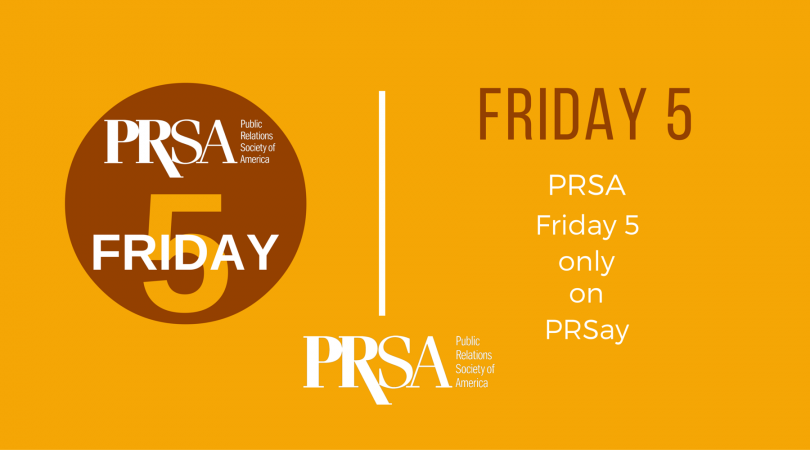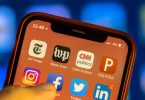While the world’s biggest soccer tournament, the 2014 World Cup, has already seen its upsets and triumphs on the field, the fields of public relations and brand marketing have seen brands that are winning and losing at the tournament under the microscope of the global stage. Brands often take advantage of the massive, built-in audience of events such as the World Cup; however, they must carefully choose their messages so they don’t backfire.
In this week’s PRSA “Friday Five”– an analysis of the week’s biggest public relations and business news and commentary – we look at brands that are winning and losing at the 2014 World Cup. We’ll discuss Delta’s ill-fated tweet, the prevalence of streaming video, the inability of Brazil to be prepared for the tournament, and tournament’s unpopular ban on a popular product. We’ll also look at the difference between a brand that is an official sponsor and a brand that is an unofficial favorite.
Delta’s World Cup Tweet Really Couldn’t Have Gone Worse (Huffington Post)
A global airline should have a working knowledge about its destinations, right? Maybe not, as Delta proved this week. The article’s author, Ed Mazza, explains:
“In an attempt to congratulate the United States for its 2-1 win over Ghana in the World Cup on Monday, the company tweeted two images that were supposed to represent the two nations: the Statue of Liberty and… a giraffe. But while Ghana is known for its rich culture, scenic beaches and forests, there’s one thing it’s not known for: giraffes.”
The image in the tweet was actually a photo from Kenya, which is located approximately 3,000 miles away from Ghana. To add fuel to the fire, the apology Delta issued on Twitter included a typo, which referred to the “precious” tweet instead of the “previous” tweet. Read more about this snafu via the Huffington Post.
2014 World Cup: The Economic Backlash of Brazil’s Public Relations Black Eye (Forbes)
Like Sochi, the world has arrived in Brazil to find incomplete facilities and a nation not quite ready for the global stage. Author Patrick Rishe explains the implications, “…if stadiums aren’t completed, airports feel third world-ish, and public workers at subways and museums strike or protest during the tournament, then this creates a massive public relations black eye which the nation may not soon recover from.”
While Brazil may take a PR hit from the lack of progress, Rishe explains that they may not be the only one at fault. FIFA (the international football association) must “instill a selection process that ensures that World Cup players and fans can be assured of top-quality facilities and operational logistics before recklessly awarding the tournament to countries ill-equipped to put on a world class show.”
Read the full article on Forbes.com.
World Cup Sets New Internet-Video Streaming Records for ESPN, Univision and Akamai (Variety)
Major winners at the 2014 World Cup are streaming video providers. According to Variety, the soccer tournament has “already broken the record for peak amount of online streaming bandwith.”
And while soccer certainly isn’t the most popular sport in the United States, Americans are tuning in to watch their team. “For ESPN, the USA-Ghana match was the biggest-ever event for WatchESPN: 1.4 million people watched the American team defeat Ghana on the digital-video service for a total of 62.4 million viewer minutes.”
In addition to online streaming, social networks like Twitter and Facebook have recorded a record amount of interactions. Read more about the matches with the highest social media interactions via the article.
FIFA Tells Beats Headphones To Beat It With Ban From World Cup (PRNewser)
There were many noteworthy images from the 2012 Olympic Games in London. One repetitive image that is ingrained in our memories was of athletes warming up while listening to music…and wearing Beats headphones. Beats, a brand recently purchased by Apple, sent the athletes free headphones to wear in London, and attempted to do the same in Brazil for the 2014 World Cup.
However, as the author of the article Tonya Garcia explains, Beats were banned from the World Cup due to a sponsorship deal with Sony. Is this power move by Sony working? Maybe not. “At this point, trying to distance Beats from the World Cup is like trying to un-ring a bell. Beats are now tied to sports in the same way that an apparel company like Nike or a drink like Gatorade is,” said Garcia.
Read the full article on PRNewser.
#Sportonomics: World Cup — Nike vs. Adidas vs. everyone else (Toronto Star)
When you think of the World Cup, you often think about athletic-wear giants such as Nike. This year, however, Nike isn’t an official tournament sponsor. How are they still getting their brand image out? According to the article, Nike sponsors 10 of the 32 teams in the tournament, making their logo front-and-center to all viewers.
In contrast, the actual official tournament sponsor, Adidas, has access to anything formally related to FIFA. While Nike sponsors the home team, Brazil, their star player known simply as Oscar scored the team’s game-winning goal in the opening game wearing Adidas cleats.
Read the full article, which features additional stand out brands, via the Toronto Star.







